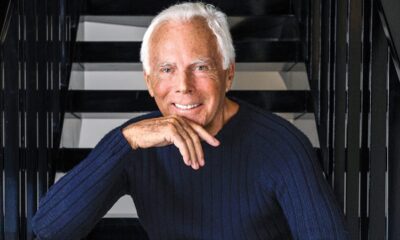News
Underfunding stifles access to clean water

Marie Nanyanzi, the programs Officer Sauti za Wanainchi
Uganda has made some progress over the past couple of years in expanding access to clean water.
However, observers note that the impressive work is being undermined by lack of funding.
According to the findings of a report on Ugandan citizens’ experiences and opinions on water, sanitation and hygiene, today 26 percent of Ugandans have access to piped water as compared to 19 percent recorded in 2019.
Marie Nanyanzi , the programs officer Sauti za wananchi under Twaweza Uganda explains that the study conducted between 6th July to 4th August 2020 indicated that 1 out of 4 Ugandans now access drinking water mainly from a piped supply, either into their household or from a public standpipe as compared to 1 out of 5 one year ago.
This means that the use of all other sources like surface water, unimproved sources which include not piped dropped slightly over the same period.
She explains that overall, eight out of ten households represented by 80% access drinking water from either a piped or other improved source such as a borehole, protected well or spring.
However, significant differences still exist. Half of urban which is 50% and 49% of wealthier households report using piped water compared to 1 out of 8 rural households standing at 16% and a similar number of poorer households (15%).
According to the study that involved 1,607 respondents, the two most commonly cited challenges faced by communities in accessing clean drinking water both relate to the accessibility of waterpoint.
This is illustrated by the findings that 36% of the citizens’ point to an insufficient number of water points, and 28% point distance to water points.
The study also shows that collecting drinking water takes half an hour or more for half of households.
Nanyanzi notes that it is great news to see improvements in access to piped water and reduced collection times for water. The government can celebrate these victories while engaging citizens in honest dialogue about the remaining tough challenges around water.
She adds that citizens continue to highlight the challenges they face in terms of access to water at consistent levels as last year.
Focusing on preventive maintenance of water points in rural areas can help address the underlying challenges of access.
“To build on the success, the government should listen to citizens’ voices and experiences, and involve them in decision-making around shared water resources, The role of community water committees can be vital in building a bridge between those who supply and manage water and those who use it,” Nanyanzi concludes.
Discussing the findings during a virtual launch of the report the Senior monitoring and Evaluation officer at the Ministry of Water and Environment Francis Opedun welcomed the findings saying this feedback indicates there is great need for increased funding of the sector by government if more Ugandans are to access piped water as per the UN sustainable development goal number 6
We have recognized that actually it’s better to provide piped water to communities but this comes at a very high cost.
In fact we have written to the cabinet and parliament indicating that there is an urgent need to invest heavily in piped water supply in order to raise the percentage of persons served by the water supply system in rural areas.
He adds that if the ministry of water is properly funded it projects to increase access to piped water from the current 11% to 50%.
“Indeed there has been an improvement in piped water supply from 11% in 2019 to 15% in 2020. So we are on the right track. We are doing everything we can as a ministry to provide these services but under very heavy constraints”-Opedun.
It is at this point that he stresses the ministry’s request to the government to consider an increment in funding for the sector.
The funding for the sector does not increase regardless of population growth so the government of Uganda should rethink the way they allocate money, it doesn’t change but we do know that the population size changes 3% every year, says Opedun.
Meanwhile refuting recent media reports that the ministry of water is one of the non- performers when it comes to utilization of loans, Opedun explains that it is only a slow performer because of the bureaucratic procedures required for it to serve.
Alluding to earlier media reports, Kasese Municipality Member of Parliament Robert Centenary says that the sector has not fully utilized the loans acquired yet at the same time there is a claim that the ministry is underfunded.
However Opedun responds by saying that the ministry is a slow performer when in regards to loan utilization this is due to the long inevitable procedures like the project designs, the government procurement procedures for instance doing due diligence for the water projects was affected by the Covid19 lockdown since there were no flights allowed
Comments






















